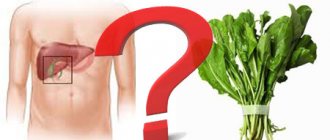What is the power of the stomach?
The main function of gastric digestion is to prepare proteins for their complete digestion in the intestines. And the acidity of gastric juice is the main indicator of the activity of gastric digestion.
The motility of the stomach depends on the concentration of hydrochloric acid and mechanical irritation of its internal surface by food masses. Both an increase and a decrease in hydrochloric acid production are caused by disorders of the nervous system.
The nature of digestion in the stomach depends on the rate of evacuation of food from it. The release of gases into the esophagus and then into the oral cavity is called belching. The main cause of belching is stagnation of food and its decomposition with the release of gases. The activity of gastric digestion also depends on the muscle tone of the stomach, the main purpose of which is reliable coverage of the food mass. Relaxation of the gastric muscles limits the speed of food movement and stimulates putrefactive processes and gas formation.
Causes of food stagnation, causing flatulence and belching:
- violations of the motor and secretory functions of the stomach and intestines;
- Esophageal diverticulum is a congenital defect of the esophageal wall in the form of a pocket;
- intestinal infections;
- intestinal parasites;
- intestinal obstruction;
- consequences of surgery that limit the amplitude of peristaltic waves (adhesions, intestinal resection);
- lesions of the autonomic nervous system of the peritoneum;
- disorders of the intestinal microflora (including changes in eating behavior, taking a number of medications);
- mental trauma, strong emotional arousal, feverish states.
Stagnation of food can be caused equally by both increased and decreased acidity of gastric contents.
Treatment
If symptoms appear, you should consult a doctor instead of self-medication. After diagnosis and collection of necessary tests, the doctor will make a diagnosis and prescribe a course of treatment. The following drugs are prescribed:
- adsorbents - accelerate the absorption of gases and help their natural release (“Smetikon”, “Polysorb”);
- probiotics - biological products that restore the intestinal microflora and improve its functioning (“Acilact”, “Bifidubakterim”);
- enzymatic agents - improve digestion in case of enzyme deficiency (“Pancreatin”, “Pepsin”);
- antispasmodics - relieve pain caused by gas pressure on the stomach or esophagus (“Papaverine”, “No-shpa”);
- sedatives - prescribed if the cause of discomfort is a malfunction in the nervous system (“Novo-Passit”, “Tetonen”).
The course of treatment, in addition to medication therapy, should include other measures. For example, a strict diet, maintaining a balanced and divided meal. In some cases, doctors prescribe choleretic drugs and prokinetics.
Useful information: Causes of heaviness in the upper abdomen: from overeating to ulcers
"Gate Guardian"
The length of time food stays in the stomach directly depends on the condition of the pylorus (lower valve) of the stomach, which acts as its exit “gate.” The muscle tone of the pylorus depends on the acidity of the food: the higher it is, the more securely the stomach is “locked.”
The reason for food retention in the stomach can be:
- persistent pyloric spasm;
- narrowing of the pylorus due to its compression by a tumor, the presence of scars or ulcers;
- atony (muscle weakness of the stomach walls).
Weakening the pylorus facilitates the backflow of bile, duodenal juice (duodenal secretion) and resulting gases, causing belching.
Bloating
When discussing the problem of bloating, it is necessary to distinguish the concept of bloating from distension. Bloating is a subjective sensation that indicates that the abdomen is currently larger than usual. The fact of objective detection is stretching, confirmed by the fact that it is impossible to fasten clothes.
However, the feeling of bloating may not be accompanied by a physical increase in belly size. Distension may occur due to an increase in the amount of air, tissue, or fluid within the abdominal cavity.
A physical increase in the size of the abdomen manifests itself as a permanent increase in the pathology of any organ in it due to inflammation or obesity, as well as due to the appearance of a tumor. Intermittent distension occurs due to accidentally accumulated gases or liquids in the stomach or intestines.
Bloating can occur in most young children. The baby's body may not have the enzyme that breaks down lactose. Or, when suckling at the breast, the baby may take in a lot of air.
Belching with low acidity
Reduced acidity of gastric juice during normal functioning of the pylorus causes accelerated evacuation of the food bolus into the duodenum, its overload and lethargy. Food that is not properly prepared (slightly acidic) in excess quantities cannot be adequately processed, especially in conditions of deficiency of bile and pancreatic juice; it “stagnates” in the upper intestines.
Stomach acid deficiency leads to the fact that food digestion begins to occur mainly in the intestines. Under these conditions, the digestion of muscle fibers is disrupted, the processes of anaerobic putrefaction intensify, and the feces acquire a putrid fetid odor, sticky consistency and stickiness.
Belching with high acidity
Excessive acidity of food simply “locks” the pylorus, also leading to prolonged retention of the food bolus in the stomach and its bacterial decomposition. The breakdown products are, among other things, gastric gases (carbon dioxide, methane and hydrogen sulfide). The pressure created by accumulated gases can overcome the tone of the lower esophageal sphincter, the entrance “gate” of the stomach.
Stagnation of food causes irritation of the walls, pain and inflammation of the mucous membranes, and a feeling of abnormally rapid satiety.
Intense gastric digestion also causes weakening of intestinal digestion and intestinal sluggishness, provoking intoxication phenomena. An enlarged stomach puts pressure on the nerve plexuses of the abdominal cavity, which are functionally important, and the intestines, reducing its peristalsis. Increased motor activity of the stomach is replaced by its relaxation (atony), muscle weakness and expansion, which further slows down the evacuation of food. Prolapse of the stomach sometimes leads to atony.
The connection between belching and disease
Despite the many reasons that cause belching in a completely healthy person, sometimes such a condition is a symptom of an illness. Most often, ailments are associated with disruption of the digestive system. Belching occurs when there is intolerance to a certain product, infection with parasites, and even when a heart attack is imminent.
A lump in the throat in combination with belching occurs with vegetative-vascular dystonia, cervical osteochondrosis, thyroid diseases and laryngeal tumors.
To recognize the disease, you need to pay attention to the taste of the belching: it can be odorless, sour, bitter, with the smell of acetone, unpleasant - like rotten eggs.
Sometimes food regurgitates. It is important to pay attention to pain: for example, an unpleasant sensation in the right hypochondrium can accompany diseases of the gallbladder, intestines, and pancreas. Pain in the solar plexus can indicate pancreatitis, solaritis, gastritis, problems with the stomach, intestines, and heart attack. Sometimes abdominal pain occurs on an empty stomach.
| State | Features of belching | Other signs of illness |
| Achalasia cardia - problems with relaxation of the lower esophageal sphincter | Air, rotten, heartburn; lump in throat; when bending over, stomach contents can be thrown into the mouth | Difficulty swallowing, hoarseness, chest pain when swallowing, weight loss |
| Zenker's diverticulum - widening of the junction of the pharynx and esophagus | Air, sour, food | Soreness, difficulty swallowing, vomiting |
| Gastroesophageal reflux disease | Regurgitation of air and sour contents; pain behind the sternum | Nausea, bloating, early satiety, dry throat, scratching when swallowing, heart rhythm disturbances, cough, shortness of breath |
| Duodeno-gastric reflux | Belching air, heartburn | Abdominal pain, yellow coating on the tongue |
| Gastritis | Airy or rotten; may alternate with heartburn | Decreased appetite, nausea, diarrhea, sudden urges, fatigue after eating, sucking pain in the epigastrium on an empty stomach, bloating, distension and heaviness in the abdomen, irritability |
| Gastritis in combination with anemia | Weakness, pallor, dry skin, brittle nails | |
| Peptic ulcer | Air, heartburn | Pain in the stomach on an empty stomach, at night, half an hour after eating - acute or dull; loss of appetite, constipation, vomiting bile or food |
| Pyloric stenosis - problems with the outlet of the stomach | Air, rotten, sour | Vomiting, weight loss, shortness of breath, dry skin, and heart rhythm disturbances gradually develop |
| Hiatal hernia | Frequent belching of air, heartburn, bitterness in the mouth | Pain behind the sternum radiates to the back and interscapular region; extrasystole is observed - a type of arrhythmia |
| Diseases of the gallbladder and biliary tract | Air, bitter | Bitterness in the mouth, nausea, dull pain in the projection of the right costal arch, bloating, constipation; pain may occur from fried, fatty foods or exercise |
| Chronic pancreatitis | Air, food | After eating - pain in the upper abdomen, radiating to the back; nausea, vomiting, flatulence |
| Dysbacteriosis | Belching or heartburn | Nausea, abdominal pain, frequent diarrhea, flatulence |
| Intestinal obstruction | Putrid | Vomiting, constipation, unbearable abdominal pain, bloating, noticeable peristalsis |
| Duodenitis | May be bitter, mixed with bile, heartburn | Abdominal pain at night and on an empty stomach, malaise, vomiting, fever |
| Giardiasis, helminthiasis | With the smell of rotten eggs | Abdominal pain, flatulence, stool disorders |
| Myocardial infarction | By air | Difficulty breathing, nausea and vomiting, pain in the stomach, right hypochondrium, between the shoulder blades, lump in the throat, feeling of fear |
| Gastrointestinal tumors | Air, food; feeling of heaviness in the epigastrium | Stomach cancer is similar to gastritis. Additionally, an aversion to meat food, decreased appetite, weight loss, and enlarged supraclavicular lymph nodes develop. |
| Solaritis - damage to the solar plexus | Could be heartburn | Burning, boring, dull pain in the heart and chest, constipation, lack of appetite |
Typically, acetone belching occurs with diabetes mellitus or impaired glucose metabolism; acidic belching appears when the pH in the stomach decreases, and rotten belching signals a disrupted digestion process, poor motor skills, and rotting in the digestive tract. Whatever the belching of air, the causes and treatment in adults can only be clarified by a serious study of all symptoms and examination. Often, gastroscopy is prescribed for this - examination of the mucous membrane of the digestive tract. The condition of internal organs can be assessed using x-rays and ultrasound; A biopsy is taken from the patient, their feces and the pH of gastric juice are examined, and if parasites are suspected, blood tests are taken.
The role of intestinal microflora
The fundamental difference between the lower sections of the gastrointestinal tract and the upper sections is the presence of microbial flora and their excretory function. Disturbances in their balance affect not only the functioning of the intestines.
Microflora is a unique and very fragile “inner world” of our intestines. The microorganisms inhabiting it are involved in the synthesis of certain vitamins, for example, vitamin K. Digestion of cellulose occurs exclusively with the help of bacterial fermentation in the intestines.
In conditions of pathology of excretory (excretory) function (constipation or diarrhea), intestinal microflora, the synthesis and absorption of various substances in the intestinal wall, for example, proteins and fats, is disrupted, which harms the nutrition and metabolic processes of the whole organism.
Consequences of enzyme deficiency
Intestinal gases are popularly delicately called gases , and intestinal bloating from excess gas formation is medically called flatulence. The presence of gases in the intestine is due to its normal physiology and the results of the vital activity of the microorganisms inhabiting it.
Even under physiological conditions, the breakdown of carbohydrates by intestinal enzymes causes a slight “fermentation” effect. But intestinal pathologies make it more pronounced, sharper, and protein foods in conditions of enzyme deficiency simply undergo rotting. Disturbances in motility and adequate secretion lead to the appearance of congestion in those parts of the intestine where they do not occur during normal operation, for example, in the duodenum.
Inflammatory processes in the mucous membranes stimulate the secretion of mucus along the entire length of the intestine, changing its inherent properties. In the small intestine, this is expressed in a change in the quantity and quality of enzymes secreted into its lumen, and in impaired absorption of digestive products, salts and water.
Conditions for normal intestinal digestion are the timely supply of pancreatic juice and bile.
Gastric juice and bile acids have pronounced disinfectant properties.
What are the symptoms of excessive gas?
Bloating occurs due to a disruption in the normal process of gas formation. Gases accumulate and expand the intestinal walls, which, in turn, stretch the muscles of the anterior abdominal wall. At the same time, the stomach can greatly increase in size, and this feeling is familiar to many - clothes suddenly become tight, you have to loosen the belt on your trousers, it becomes difficult to bend over. In general, bloating causes discomfort, pain, and reduces ability to work.1,2
At this moment, the body is looking for ways to get rid of excess gases, and the appearance of the following symptoms is associated with this.
Flatulence
This is the accumulation of a large amount of gases in the digestive tract. It leads to a feeling as if the stomach is bursting, tension in the abdominal wall, and the appearance of rumbling and seething in the stomach. It is often accompanied by cramping pain, which can be so severe that the person turns pale and breaks out in a cold sweat.
Flatulence
One of the most unpleasant manifestations of increased gas formation and bloating is excessive release of gases through the rectum. May be accompanied by quite loud sounds. In this case, moderate pain, abdominal cramps, and a feeling of fullness may occur.
Frequent belching
There is nothing terrible in the fact of belching, however, if it is frequent, accompanied by an unpleasant odor and a loud sound, and all this against the background of a bloated abdomen, then this is already a problem.1,2,3
Biliary tract diseases
Bile production may be reduced as a result of liver failure. Gallstone disease and/or diseases of the biliary tract also lead to bile deficiency.
Both of these certainly affect the process of intestinal digestion, primarily the ability of the intestines to break down and process fats. In the absence of bile, 60% of fats are not digested.
The absence or insufficient flow of bile into the duodenum causes the growth of pathogenic bacterial flora, which is not restrained by the bactericidal properties of bile. As a result, the processes of food decomposition increase, gases accumulate, increasing the volume of the intestine and causing stretching of its walls, intestinal motility is disrupted, and the feces become compacted, which causes constipation.
Causes of poor bowel function
The processes of normal digestion are due to the close relationship and coordination of the work of various parts of the gastrointestinal tract through nervous regulation: the secretory activity of the stomach affects the function of the intestines. For normal intestinal secretory activity, it is extremely important that the food mass is properly digested and prepared in the stomach.
The causes of intestinal digestion disorders are:
- disturbances in the activity of the central nervous system and nerves that “weave” the peritoneum and ensure intestinal function;
- inflammatory processes of the intestinal walls;
- gastric secretion disorder;
- disorder of pancreatic juice secretion;
- lack of bile;
- ulcerative lesions and intestinal tumors.
Inflammation of the large intestine impedes the absorption of nutrients and its motility. In general, the secretory, motor and absorption functions of the gastrointestinal tract are closely intertwined: pathological disorders of secretion entail changes in motor functions, and vice versa.
The connection between flatulence and constipation
The process of formation and compaction of feces occurs in the large intestine. Constipation is the most common cause of bloating, general lethargy and lack of appetite.
Putrefactive and fermentative processes give the contents of different parts of the intestine pronounced, to varying degrees, toxic properties. The contents of the large intestines are the most toxic. Self-poisoning of the body under normal physiological conditions is prevented by the barrier properties of the intestinal wall and liver.
Inflammatory processes make the intestinal wall permeable to both bacteria and intestinal poisons.
Self-poisoning manifests itself with greater force if the barrier role of the liver and the excretory capacity of the kidneys are weakened. With constipation, such autointoxications become chronic. Sluggish peristalsis creates conditions for inflammatory processes, the entry of rotting products and even pathogenic bacteria into the blood.
Treatment approaches
Treatment of flatulence requires an integrated approach. Only a complete examination of the patient makes it possible to establish the type of acidity that determines treatment tactics. During a detailed conversation, the doctor determines the presence of chronic diseases and additional symptoms, analyzes the patient’s lifestyle and diet, and his individual reactions to certain foods and medications.
Note! Enemas at home are ineffective: the volume of water that enters the intestines irrigates only a small area of the colon. Regular enemas wash away beneficial intestinal bacteria and only complicate the course of the disease.
General approaches to the treatment of belching and flatulence are as follows:
- choosing a balanced diet that stimulates the restoration of intestinal flora and eliminates constipation;
- taking medications to enhance peristalsis (prokinetics);
- taking enterosorbents that neutralize toxic metabolic products (smecta, activated carbon);
- pest control;
- taking the necessary enzyme preparations.
Activated carbon should not be taken for longer than 4 days. Being an excellent sorbent, it is able to bind and remove a number of microelements necessary for humans. You must understand that taking drugs such as espumisan, reltser, coliquid, meteospasmil provides only temporary relief, but does not eliminate the causes of flatulence, which can only be determined during an examination.
Diet
In case of gastrointestinal disorders, the importance of adequate eating behavior increases many times over. Diet-related causes of belching and flatulence are:
- consumption of foods that cause increased gas formation (raw vegetables and fruits, especially grapes, legumes, cabbage, asparagus);
- consumption of finished products with fermentation enzymes, especially industrial production (kvass, beer, sweet carbonated drinks, rye bread, chewing gum with menthol);
- individual lactose intolerance;
- swallowing air while eating.
The nature of food (temperature, consistency, irritating components) affects gastrointestinal motility. Excess fatty foods suppress the intensity of muscle contractions, reducing the tone of all gastrointestinal organs without exception.
The function of the entire gastrointestinal tract depends on the degree to which food is processed by saliva in the oral cavity. Poorly chewed food definitely leads to digestive disorders.
Ill-conceived diets are completely unacceptable. Both unjustified fasting and overeating disrupt the functioning of the digestive tract.
The diet should prevent constipation. Sweet desserts and fruits immediately after the main meal act as a fermentation starter for the intestinal mass, so it is better to consume them in between meals.
Home remedies against burping
Excessive belching can be controlled through diet and changes in eating habits. First of all, meals should be eaten slowly and in moderation , both solid foods and liquids - it is better to eat in smaller portions, but more often. Precise chewing will reduce the amount of air entering the stomach. It is advisable to exclude carbonated drinks from your diet.
In case of digestive problems, such as irritating bloating that increases the unwanted reflex, herbal teas can be used. The best results are obtained by infusion of mint or St. John's wort.
After eating too heavy a meal, you may need to use over-the-counter digestive medications. It is worth knowing that the excess air and gases that were created due to the fermentation of food are absorbed by activated carbon.
If the air release reflex is accompanied by other symptoms indicating a developing disease, treatment with home remedies will not bring the desired results. Medical consultation and an accurate diagnosis of the cause of belching are necessary.
Folk recipes
To reduce gas formation in the intestines, any herbal infusions containing spices - cumin, coriander - that have bactericidal properties are suitable. The most popular remedy is dill seeds. Both infusions and decoctions of them are equally effective.
To make an infusion, 1 tbsp. seeds should be crushed and poured with a glass of boiling water. The product is infused for 3 hours, covered with a napkin, and consumed a third of a glass 20 minutes before meals. To prepare the decoction 1 tsp. seeds should be boiled over low heat in the same amount of water for 7-10 minutes. Take warm in the same way. It is better to prepare the decoction daily.
It is well known that parsley is a real storehouse of vitamins and essential microelements. And crushed roots and seeds of parsley are a simple and effective carminative. Pour 2 tablespoons of boiling water over a glass. roots and leave for at least 8 hours. Take the product 3 times a day before meals.
Pharmaceutical chamomile has a good anti-inflammatory effect; it is used as part of many medicinal preparations for gastrointestinal diseases.
You can brew 1 tbsp. dried chamomile flowers, like ordinary tea, with a glass of boiling water, just leave for at least half an hour. This infusion has a disinfecting effect, inhibiting putrefactive processes in the stomach and duodenum. Sage has the same effect. Take 1 tbsp per glass of boiling water. chopped grass. It must be left for at least 2 hours.
Tips for eliminating belching
Small changes in lifestyle and diet reduce the chance of an unpleasant phenomenon. If you are prone to belching, you should remove milk, legumes and cabbage from your diet. You should try not to drink carbonated drinks, and eat fruit only a couple of hours after the main course. Walking is also beneficial: gas from the stomach passes into the intestines.
To avoid burping, you need to chew your food thoroughly, not talk at the table, and split the meals themselves into 5-6 small portions throughout the day.
The patient should avoid baths, sleep and cigarettes immediately after meals, and use chewing gum for no longer than 15 minutes.
You should not wear clothes with tight waistbands. It makes sense to do physical exercise only one and a half to two hours after eating. You need to sleep on a high pillow: this will allow gases to leave the gastrointestinal tract better. Sometimes it becomes important not to eat too hot or cold food, avoid high-temperature drinks and foods that cause intolerance. If you are obese, losing excess weight will help.










